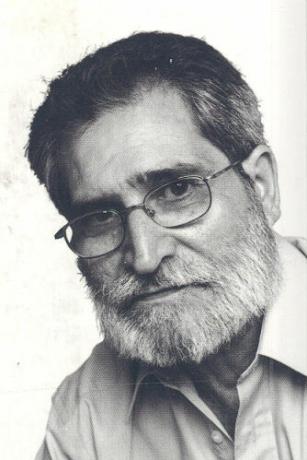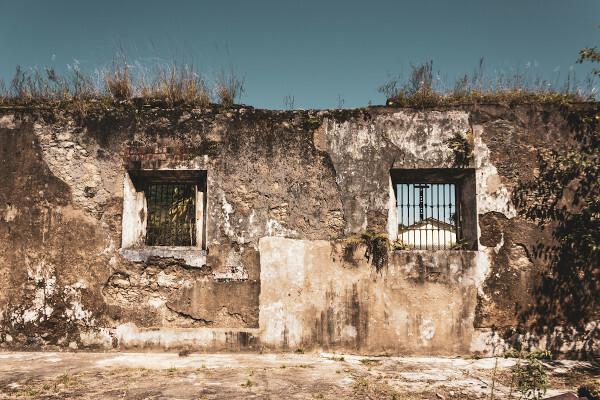Pepetela (Artur Carlos Maurício Pestana dos Santos) is a Angolan writer born on October 29, 1941. He was part of the Popular Movement for the Liberation of Angola (MPLA) from 1969 to 1974, when participated in the armed struggle for the independence of his country, which took place in 1975. Graduated in sociology, in addition to being a writer, he is also a teacher. It's the first Angolan to win the Camões Award.
The works of author are part of contemporary Angolan literature and are characterized by:
political engagement
anti-colonialism
sociocultural criticism
valorization of national identity
All this can be seen in your best known novel — mayombe — which narrates the adventures of MPLA guerrillas during the struggle for Angola's independence.
Read more: Julio Cortázar – Argentine author whose work shows traces of magical realism
Pepetela's Biography

Pepetela (Artur Carlos Maurício Pestana dos Santos) was born on October 29, 1941, in Benguela,
City angolan. At the age of 15, he moved to the city of Lubango, where he began his political engagement.In 1958, moved to Portugal, where he studied at the Instituto Superior Técnico and the University of Lisbon. During the four years he lived in this country, participated in discussions at the Casa dos Estudantes do Império, a kind of hostel for students from the Portuguese colonies, where groups of anti-colonialist and anti-fascist students reflected on politics and culture.
The writer did not accept the obligation to enlist in the Portuguese army and, therefore, exiled himself to Paris, in France, where he lived for six months. Then he went to the Algeria it's there, graduated in sociology.
He was also part of the Popular Movement for the Liberation of Angola (MPLA), as well as being one of the founders of the Center for Angolan Studies. So, from 1969 to 1974, he took part in the armed struggle. As a guerrilla, he was called Pepetela (“pestana”, in Umbundo, a Bantu language), a war name that became his literary pseudonym.
During the guerrilla, Pepetela was also responsible for advertising in favor of armed struggle for independence, held in November 1975, when he became the deputy minister of Education (a position he held until 1982) and participated in the founding of the Union of Angolan Writers (UEA). He then went on to work as a sociology professor at the University of Luanda, in addition to dedicating himself to literary writing and becoming the first Angolan writer to receive the Camões Award.
Do not stop now... There's more after the advertising ;)
Pepetela Awards
National Literature Award (1980 and 1985) — Angola.
Special Award of Critics of São Paulo (1993) — Brazil.
Camões (1997) — Brazil/Portugal.
Prinz Claus (1999) — Netherlands.
National Culture Award (2002) — Angola.
Universal Galician writer (2007) — Spain.
Rosalía de Castro (2014) — Spain.
Fonlon-Nichols (2015) — African Literature Association (ALA).
Casino da Póvoa (2020) — Portugal.
Pepetela's literary style
Pepetela is an author of contemporary literatureangolan, and his works have the following characteristics:
political engagement
sociocultural criticism
critical nationalism
historical fiction
Irony
Utopiaversus dystopia
anti-colonialism
social realism
Corruption Criticism
Enhancement of national identity
See too: José Saramago – Nobel Prize-winning Portuguese author in Literature
Pepetela's Works

Ngunga's Adventures (1973) — novel
Muana Puó (1978) — novel
Wake up (1978) — theater
The house of idols revolt (1979) — theater
mayombe (1980) — novel
the dog and the caluandas (1985) — novel
Yaka (1985) — novel
Lueji, the birth of an empire (1989) — novel
The generation of utopia (1992) — novel
Kianda's wish (1995) — novel
parable of the old tortoise (1996) — novel
the glorious family (1997) — novel
the mountain of lilac water (2000) — novel
Jaime Bunda, secret agent (2001) — novel
Jaime Bunda and the death of the American (2003) — novel
predators (2005) — novel
The terrorist from Berkeley, California (2007) — novel
the almost end of the world (2008) — novel
death tales (2008) — short stories
the plateau and the steppe (2009) — novel
Chronicles with war background (2011) — chronicles
To the south. the sombrero (2011) — novel
the shy and women (2013) — novel
unwell chronicles (2015) — chronicles
If the past had no wings (2016) — novel
Your Excellency of body present (2018) — novel
Also access: Anguish: novel by Graciliano Ramos
mayombe
mayombe it's the most famous novelof Pepetelaand tells the story of SemMedo, commander of a group of guerrillas from the Popular Movement for the Liberation of Angola (MPLA). In this way, the book configures itself in a historical fiction, because it mixes fictional elements with historical facts. The hero fights for the independence of Angola, colony portuguese, and his group fights the logging of Mayombe forest, carried out by Angolan workers at the service of the colonizers:
“—You earn twenty shields a day, for cutting down the trees with an axe, marching, marching, carrying weights. [...]. And how much does the boss earn for each tree? A lot of money. What does the boss do to earn this money? Nothing, nothing. But he's the one who wins. [...]. Are the trees the boss's? Do not. They are yours, they are ours, because they are in Angola. [...]. Is the sweat from work the boss? No, it's yours, because it's you who work. [...]. This is colonialist exploitation. The one who works is getting wealth for the foreigner, who doesn't work. The boss has the strength on his side, he has the army, the police, the administration. It is with this strength that he forces you to work, for him to become rich.”
the group tries raise awareness among Angolans on the evils of colonialist domination; however, not all workers welcome the MPLA. Furthermore, the guerrillas need to deal with the differences ethnic, that prevent the unity of the Angolan people, and the scarcity of food.
However, alongside the armed struggle, there is a love story between the characters Commissioner and Ondina, who also ends up getting involved with André, thus forming a love triangle:
“André was kikongo and Ondina betrothed to a kimbundu. You don't have to be a sorcerer to guess the mood that will reign in Dolisie, Fearless thought. André is buried permanently. while having lovers Congolese, people murmured, but dared not act. It was different now. The dramatic thing is that the inevitable happened for André at the Commissar's expense, that was unfair. Let's go there and know what is fair or unfair, when there are women in the middle!"
Fearless too falls in love with Ondine. However, in the fight between the guerrillas and the "tugas" (Portuguese), he is seriously injured:
“[...]. the pl
The year of Fearless was to go to the assault of the slope, to the grenade, to throw confusion at the enemy and save the Commissar.
He was ten meters from the embankment when Breda's gust caught him in the belly, where his anthill was born. He dropped to his knees, clutching his belly. Theory bent down to him.
- To attack! cried Fearless, on his knees, clutching his belly.”
Image credits
[1] Jmendez~commonswiki/ commons
[2] Editor Leya (reproduction)
Warley Souza
Literature teacher



